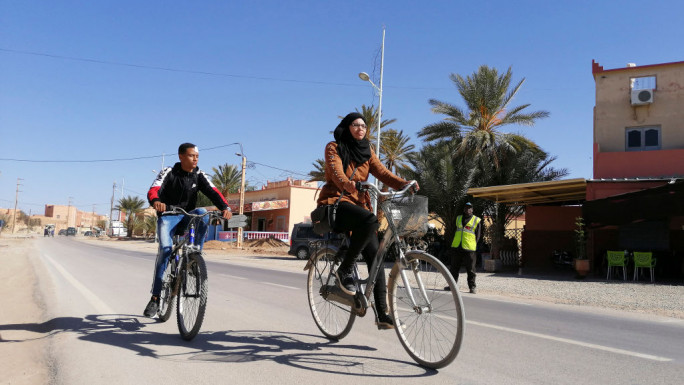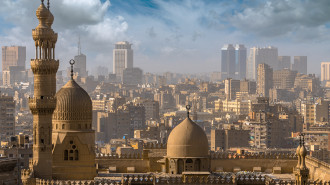
For the diaspora, can Lebanon's irresistible pull trump the threat of war?

Safety is a common concern among the diaspora when considering a visit to Lebanon.
Although around 400,000 were estimated to have arrived in June alone, that concern was heightened, as numbers dropped from the previous year.
With Israel’s continued bombing of southern Lebanon, an attack on the Israeli-occupied Golan Heights, and targeted assassinations of Hezbollah and Hamas leaders, a regional war felt imminent.
Tania Baki, a 25-year-old teacher in the United Arab Emirates (UAE), visits Lebanon every year.
“Lebanon has always been politically volatile, but it was worse this summer,” she said.
“Everyone was on edge. Events were getting cancelled left and right.”
The rising tensions were accompanied by Israel flying military jets at low altitudes almost daily, launching sonic booms that continue to reverberate across Lebanon’s airspace and declare psychological warfare on its people.
The Lebanese are no strangers to explosive sounds: The seismic port explosion in 2020, the airport bombing followed by a 34-day war in 2006, the civil war and other conflicts in recent memories.
“Hearing and feeling the sonic booms had a profound effect on my kids, who were born and have lived their entire lives in Dubai. It was a stark contrast to their usual sense of safety,” said Susan Haidar, American University of Dubai (AUD)’s Assistant Registrar for Academic Records.
“The booms created fear and anxiety that they had never encountered before. Even during calm moments, the echoes of those sounds lingered in their minds, serving as a constant reminder of the fragile security of the situation we were in,” the 40-year-old added.
Lebanon has recently filed a complaint with the United Nations (UN) Security Council over the sonic booms, a violation of UN resolutions and Lebanon’s sovereignty.
“At first, they would scare me,” said Tania. “Then, I’d just feel a bit startled and move on. Eventually, the days I didn’t hear sonic booms felt weird.”
Disrupted travel plans
Flights were delayed or cancelled by airlines such as MEA, Lufthansa and Turkish as tensions escalated, due to insurance risk concerns. Visitors were forced to question whether they should leave early.
Hisham Daou, a 45-year-old owner of Daou Home Improvement in the Washington, D.C. metropolitan area, was heading back when his flight was cancelled three times.
“The cancellation affected my work here — I cancelled a lot of meetings and lost a couple of businesses. During my departure, there was a bomb in Beirut,” Hisham revealed.
There was certainty that Israel would continue to bomb Lebanon past its borders, but when and to what scale remained speculative.
Families gathered to watch and listen to the news with alertness — whether the sounds were sonic booms or actual bombs was brought into question. Sometimes it was the latter.
The news informed what areas to avoid and when to leave. Citizens of countries including the United States and the United Kingdom were urged not to go and to leave immediately from Lebanon this summer.
Bassel Ghazali, a 26-year-old consultant in the UK feels living abroad means sacrificing being with loved ones for better opportunities.
“It’s always harder to be worrying about loved ones from afar instead of being there with them, regardless of the ability to do anything should escalations arise,” Bassel told The New Arab.
“I was willing to risk being stuck in Lebanon with my loved ones and delayed my flight by a week because I wanted to spend more time with them.”
'Each boom was a reminder of how inhumane the IDF is'
The Gaza genocide and the role Israel plays in the region’s unrest have increased the palpability of the nation’s trauma.
“I would feel angry with every boom, knowing how it would terrify so many people, especially kids. Each boom was a reminder of how inhumane the IDF is, and they did nothing but strengthen my feelings against them,” Bassel added.
“Conversations about Palestine were a lot more frequent, and people seem to be more on the same page these days. I also found myself thinking about the situation more than I would have in the past," he added.
“I felt grateful that I had a place to run to in case the situation worsened. But I also felt a lot of survivor’s guilt.”
Susan added anxiety has always been a part of life in Lebanon, "But it felt more intense this time, making the experience significantly more stressful.
"Living in the diaspora makes it easier to appreciate Lebanon's beauty, but it also amplifies our longing and sense of helplessness when crises arise,” she said.
Karim Abi Said, a 23-year-old student in Switzerland was shocked and terrified by the sounds, feeling more jumpy than before.
“My flight was delayed by eight days, but it’s never easy leaving Lebanon — it’s filled with dread," he told The New Arab.
"I was hoping whatever was planned would happen when I was there because I didn’t want to leave my family knowing it’s not safe. I’m very attached to the ground and my family, so it’s not easy in Switzerland — even if it’s a very comfortable life," Karim said.
“A huge change from our previous visit was that we used to go there fearlessly," Hisham continued.
"It was also cheaper and medicine was more available. Living in the diaspora helps us raise our families in a safe place and take care of their future. But you lose quality time with your family back home. You’re always missing them.”
Other Lebanese residents expressed similar fears, but have developed varying coping mechanisms.
“We cope by having a plan B of going somewhere safe, although there have been exorbitant extortion when [families] go to Christian areas or areas that haven’t been targeted and are asked to pay triple the rent or six months up front,” said Mahdi El Amin, a 25-year-old data engineer who lives in Lebanon and whose family is in the south where the conflict is concentrated.
“My first reaction to the sonic boom was surprise. We would watch the news to be reassured it wasn’t [a bomb]. In the end, it didn’t affect my day and we would make jokes like ‘Hey, you left us hanging for two days’ and then keep on going with our lives,” he added.
Mahdi's family in the diaspora chose not to visit, and for the first summer of his life, he avoided the south because of the Israel-Hezbollah conflict that has been ongoing since last October.
“Living abroad has its privileges but I don’t envy it. I’ve lived abroad before but whatever bad news I would hear in Lebanon would fill me with immense guilt for not being here. My friends in the diaspora feel the same,” Mahdi continues.
The Lebanese living in the diaspora are products of fleeing families from war and unrest, and the heartbreak that comes from the necessity to leave family behind amid chronic turmoil.
Despite warnings to avoid travel to Lebanon, and the question of safety, political uncertainty and sonic booms, the diaspora will continue to return and hope for a better future.
Sonia Abdulbaki is a designer, writer and poet

![Palestine sat next to member states at the United Nations General Assembly on Tuesday [GETTY]](/sites/default/files/styles/image_684x385/public/1441455581.jpeg?h=199d8c1f&itok=CgJaFY6v)





